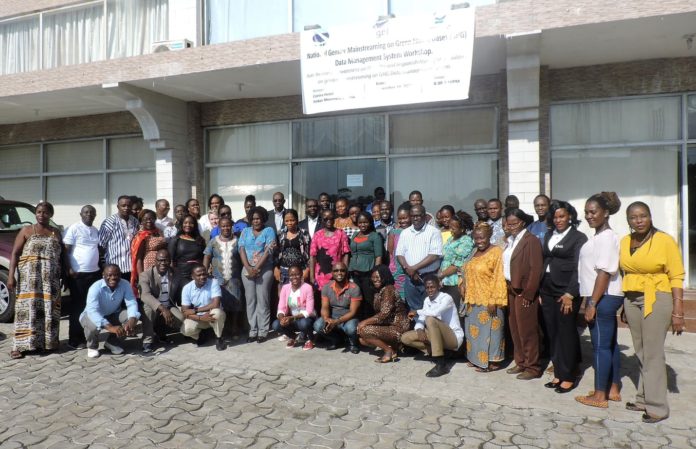The Environmental Protection Agency of Liberia (EPA) in collaboration with Conservation International (CI) has ended a one-day Gender Awareness Training in Monrovia to raise awareness on the roles and responsibilities of stakeholders in gender mainstreaming on greenhouse gas (GHG).
The training also looks at Monitoring Reporting and Verification (MRV) of GHG emissions in Liberia.
The training was held under the auspices of the Capacity Building Initiative for Transparency Elements of the Paris Climate Agreement (CBIT) Project funded by Global Environment Facility (GEF), the EPA said in a release issued last evening.
Yekeh P. Johnson, CBIT Project Manager told participants Thursday November 14, 2019 that the one day event was in fulfillment as a result of the Paris Agreement on Climate Change which primarily rests upon a foundation of Nationally Determined Contributions (NDCs) originally submitted by Parties to the Convention in 2015, and formally adopted on November 4, 2016.
Each NDC, according to Mr. Johnson represents the national plan pledges individual countries have made to meet the universal goal of keeping global temperature increases to well below 2 degrees Celsius above pre-industrial levels (while aiming for 1.5 degrees Celsius) to avoid the worst impacts of climate change.
He disclosed that the project seeks to strengthen national institutions for transparency related activities in line with national priorities, provide relevant tools, training, and assistance for meeting the provisions stipulated in Article 13 of the Agreement.
Mr. Johnson noted that it is also intended to assist in the improvement of transparency over time.
Speaking at the start of the one-day Gender Awareness Training, CI Country Director Madam Jessica Donovan Allen said was excited that her institution was co-hosting the training with the EPA and other sectors of the Liberian Government.
She disclosed that the training was intended to increase transparency around GHG emission and indicated that the forum would specifically focus on gender because men and women feel the effect of climate change differently.
Madam Allen said it was necessary to have a place to “track things and keep information so that we can adapt and address the issues of climate change; so that we make sure we are addressing the most vulnerable people”.
The CI Country Director called on participants, which comprised mostly women to help figure out how they are going to mainstream gender into the objectives of the CBIT Project.
The training attracted three presentations done by Arthur R. M. Becker, National CBIT Focal Point, Margaret Beyslow of the EPA and Assaf Kumeh Salim from United Nations Development Program (UNDP).
Mr. Becker provided an overview of the CBIT Project in Liberia, while Madam Beyslow presented on Liberia National Gender and Climate Change Policy in relations to GHG, MRV and Data System.
Mr. Salim’s presentation was titled: “Gender mainstreaming-a perspective of the Liberia Biennial Update Report (BUR) and National Communication (NC).”






















